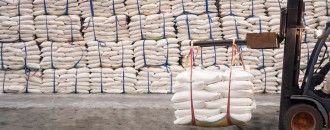
US Federal Reserve sticks to near zero interest rate
Source: PTI
In a major relief to India and other developing countries, US Federal Reserve has decided to keep the interest rates unchanged at near zero. "To support continued progress toward maximum employment and price stability, the Committee today reaffirmed its view that the current 0 to 1/4 per cent target range for the federal funds rate remains appropriate," the Federal Reserve said in a statement after the meeting of its committee. In determining how long to maintain this target range, the Committee will assess progress -- both realised and expected -- towards its objectives of maximum employment and two per cent inflation, it said. The Federal Reserve said it anticipates that it will be appropriate to raise the target range for the federal funds rate when it has seen some further improvement in the labour market and is reasonably confident that inflation will move back to its two per cent objective over the medium term. Later at a news conference, Federal Reserve Chairwoman Janet L Yellen said the committee continues to anticipate that the first increase in the federal funds rate will be appropriate when it has seen some further improvement in the labour market and is reasonably confident that inflation will move back to its two per cent objective over the medium term. Yellen said the committee continues to anticipate that the first increase in the federal funds rate will be appropriate when it has seen some further improvement in the labour market and is reasonably confident that inflation will move back to its 2 per cent objective over the medium term. "The inflation outlook has softened slightly. We've had some further developments, namely lower oil prices, and a further appreciation of the dollar, that have put some downward pressure in the near-term on inflation. Now, we fully expect those further effects like the earlier moves in the dollar and in oil prices to be transitory, but there is a little bit of downward pressure on inflation," she said in response to a question. "I want to emphasise that domestic developments have been strong. We see domestic demand growing at a solid pace, the labour market continuing to improve. Of course, we will watch incoming data to confirm our expectation that will continue. And we, of course, will watch global financial and economic developments," she said in response to a question. "I can't give you a recipe for exactly what we're looking to see, but as we say, we want to see continued improvement in the labour market, and we would like to bolster our confidence that inflation will move back to two per cent. And, of course, a further improvement in the labour market does serve that purpose. There could be other things we would see that could bolster that confidence, but further improvement in the labour market will serve to do that," she noted. Observing that there are many uncertainties in the global economy, she said: "We are asking ourselves how economic and financial developments in the global economy affect the risk to our outlook for our two goals and whether or not they create unbalanced risks that we want to wait to resolve to some extent." The United States, she said, has long expected to see some slowing in Chinese growth over time as they rebalance their economy. "And they've planned that, and I think there are no surprises there," she said. "The question is whether or not there might be a risk of a more abrupt slow down than most analysts expect, and I think developments that we saw in financial markets in August, in part, reflected concerns that there was down-side risk to Chinese economic performance. And perhaps concerns about the deftness in which policymakers were addressing those concerns," she added. "In addition we saw a very substantial downward pressure on oil prices and commodity markets, and those developments have had a significant impact on many emerging market economies that are important producers of commodities, as well as more advanced countries, including Canada, which is an important trading partner of ours, that has been negatively affected by declining commodity prices, declining energy prices," Yellen said. "Now, there are a lot of countries that are net importers of energy that are positively affected by those developments. But emerging markets, important emerging markets have been negatively affected by those developments. We've seen, in significant outflows of capital from those countries, pressures on their exchange rates and concerns about their performance going forward," she said. "So, a lot of our focus has been on risks around China, but not just China, emerging markets more generally and how they may spill over to the United States," she said.
September 18, 2015 | 6:51pm IST.






 to success.
to success.